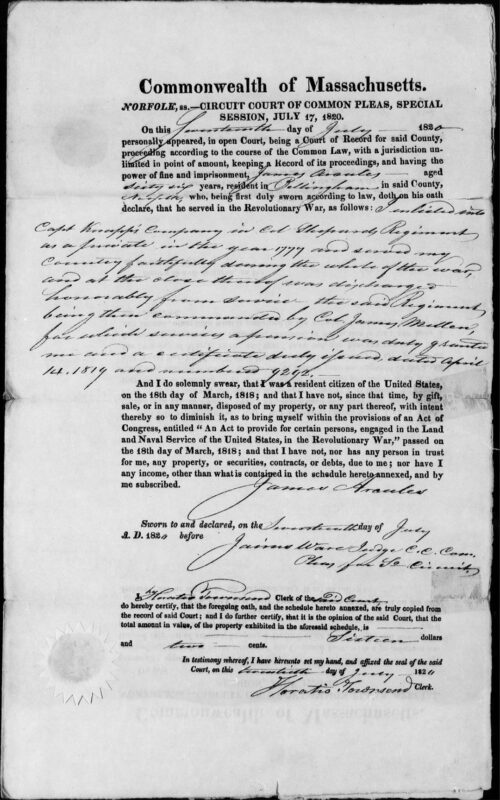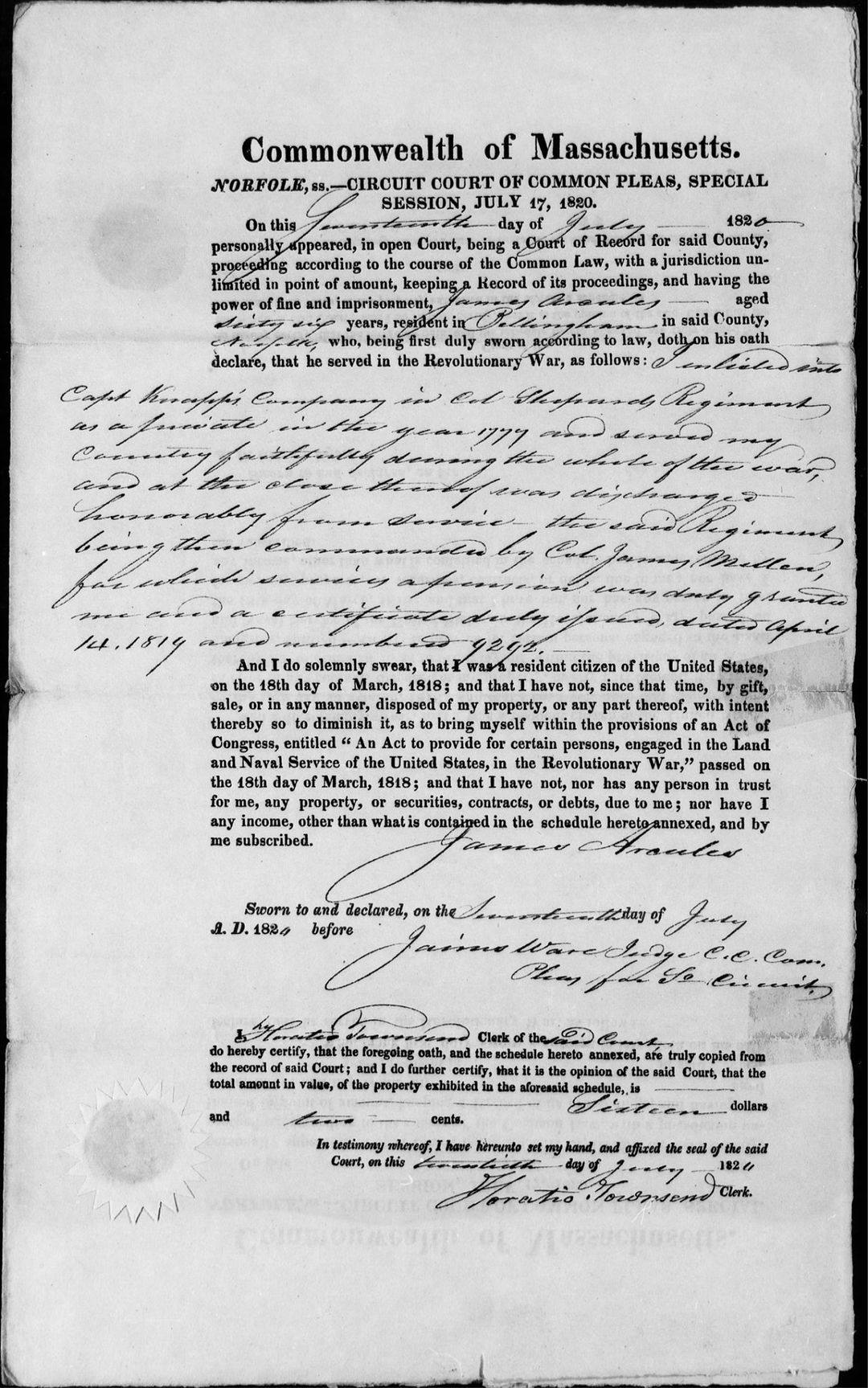James Articules, a man of color, was paid to serve in place of Medfield’s Henry Harding during the Revolutionary War. Someone also hired him for another enlistment.
“In accordance with an order from Col. Ephraim Wheelock, dated Medfield, April 15, 1777; said [Henry] Harding hired James Articules to serve in his place” (1).
How was Articules paid?
If there was a signed contract, to the best of my knowledge it is long gone. However, there was a land deed between Articules and a Mary Harding at the end of the war (2). And James sold the property only fifteen months later (3).
The difference in sale prices between the two transactions?
Mary Harding to James Articules: 6 pounds lawful money on December 5, 1783
Articules to Hartshorn: 47 pounds 2 shillings lawful money, March 7, 1785
About an 800% increase.
What accounts for the difference? Was Mary related to Henry Harding, the man James served in place of even though she was not his widow (4)?
Mary Harding insisted “that he shall make and maintain a good Sufficient fence between the above bargained land and my own land adjoining North for the term of years that I am obliged by a Covenant to keep said land fenced.”
Fencing could be extremely expensive in terms of cash and labor (5) and could equal the value of the land itself or more. A solid boundary was necessary to keep farm animals contained on ones property. But there was also the matter of clearing land, a monumental task. Perhaps that explains the difference in prices and was not a means to pay James for his service. There might be other explanations. Was post war inflation a factor?
Whichever means Arcules (spelling variation) was paid was likely not equal to his wartime experience.
Not only was Mr. James Arcules a soldier at Bunker Hill; he was also at Valley Forge and the Battle of Saratoga (6).
Susan Elliott
Independent Researcher

(1) Massachusetts Soldiers and Sailors of the Revolutionary War. A Compilation from the Archives. Volume 1. 1896. Volume 7.
(2) Suffolk County (Massachusetts), Deeds v. 147-149, 1785, Book 148, Pages 258-259. Draft transcription by S. Elliott.
(3) Ibid. Pages 259-260.
(4) Geni.com; accessed March 3, 2020.
(5) Bushman, Richard. Benjamin Franklin’s World podcast, Episode 234. Farms and Farm Families in Early America.
https://benfranklinsworld.com/episode-234-richard…/ . Thanks Fred E. for reminding me of this information.
(6) Quintal, George. Patriots of Color, A Peculiar Beauty and Merit, Boston National Historic Park. Page 51.
MANUSCRIPT: Arcules, James. Fold3, Page 10, Revolutionary War Pension and Bounty Land Warrant Application Files
